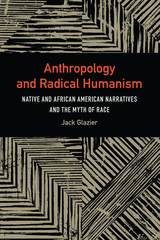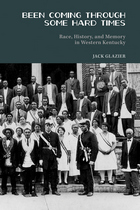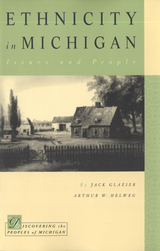
Watson collected autobiographies and religious conversion narratives from elderly African Americans. Their texts represent the first systematic record of slavery as told by
former slaves. That innovative, subject-centered research complemented like-minded scholarship by African American historians reacting against the disparaging portrayals of black people by white historians. Radin’s manuscript focusing on this research was never published. Utilizing the Fisk archives, the unpublished manuscript, and other archival and published sources, Anthropology and Radical Humanism revisits the Radin-Watson collection and allied research at Fisk. Radin regarded each narrative as the unimpeachable self-representation of a unique, thoughtful individual, precisely the perspective marking his earlier Winnebago work. As a radical humanist within Boasian anthropology, Radin was an outspoken critic of racial explanations of human affairs then pervading not only popular thinking but also historical and sociological scholarship. His research among African Americans and Native Americans thus places him in the vanguard of the anti-racist scholarship marking American anthropology. Anthropology and Radical Humanism sets Paul Radin’s findings within the broader context of his discipline, African American culture, and his career-defining work among the Winnebago.

From the earliest days when slaves were brought to western Kentucky, the descendants of both slaves and slave owners in Hopkinsville, Kentucky, have continued to inhabit the same social and historic space. Part ethnography and part historical narrative, Been Coming through Some Hard Times offers a penetrating look at this southern town and the surrounding counties, delving particularly into the ways in which its inhabitants have remembered and publicly represented race relations in their community.
Neither Deep South nor Appalachian, this western Kentucky borderland presented unique opportunities for African American communities and also deep, lasting tensions with powerful whites. Glazier conducted fieldwork in Hopkinsville for some ten months, examining historical evidence, oral histories, and the racialized hierarchy found in the final resting places of black and white citizens. His analysis shows how structural inequality continues to prevail in Hopkinsville. The book’s ethnographic vignettes of worship services, school policy disputes, segregated cemeteries, a “dressing like our ancestors” day at an elementary school, and black family reunions poignantly illustrate the ongoing debate over the public control of memory. Ultimately, the book critiques the lethargy of white Americans who still fail to recognize the persistence of white privilege and therefore stunt the development of a truly multicultural society.
Glazier’s personal investment in this subject is clear. Been Coming through Some Hard Times began as an exploration of the life of James Bass, an African American who settled in Hopkinsville in 1890 and whose daughter, Idella Bass, cared for Glazier as a child. Her remarkable life profoundly influenced Glazier and led him to investigate her family’s roots in the town. This personal dimension makes Glazier’s ethnohistorical account especially nuanced and moving. Here is a uniquely revealing look at how the racial injustices of the past impinge quietly but insidiously upon the present in a distinctive, understudied region.
JACK GLAZIER is a professor of anthropology at Oberlin College. He is the author of Dispersing the Ghetto: The Relocation of Jewish Immigrants across America and Land and the Uses of Tradition among the Mbeere of Kenya.

In the early 20th century, the population of New York City’s Lower East Side swelled with vast numbers of eastern European Jewish immigrants. The tenements, whose inhabitants faced poverty and frequent unemployment, provoked the hostile attention of immigration restrictionists, many of whom disdained Jews, racial minorities, and foreigners as inferior. Accordingly, they aimed to stifle the growth of dense ethnic settlements by curtailing immigration.
Dispersing the Ghetto is the first book to describe in detail an important but little-known chapter in American immigration history, that of the Industrial Removal Office (IRO), founded in 1901. Established American Jews—arrivals from the German states only a generation before—felt vulnerable. They feared their security was at risk owing to the rising tide of Russian Jews on the east coast. German American Jews believed they too might become the objects of anti-Semitic scorn, which would be disastrous for German and Russian Jews alike if it were allowed to shape public policy. As a defensive measure to undercut the immigration restrictionist movement, American Jews of German origin established the Industrial Removal Office to promote the relocation of the immigrants to the towns and cities of the nation’s interior. Until the onset of World War I, the IRO directed the resettlement of Jewish immigrants from New York and other port cities to hundreds of communities nationwide.
Drawing on a variety of sources, including the IRO archive, first-person accounts of resettlement, local records, and the Jewish press, Glazier recounts the operation of the IRO and the complex relationship between two sets of Jewish immigrants.

As the introductory volume in the series Discovering the Peoples of Michigan, Ethnicity in Michigan outlines the processes of migration, as well as the rich relationship between ethnic groups and the trajectories of historical and social change in Michigan. On both state and local levels, issues of identity, race, politics, and shared history inform community development. Jack Glazier and Arthur Helweg provide a substantive general and theoretical overview of the various ethnic groups in Michigan, and of the ways in which immigrants both respond to and shape Michigan's particular regional character.
READERS
Browse our collection.
PUBLISHERS
See BiblioVault's publisher services.
STUDENT SERVICES
Files for college accessibility offices.
UChicago Accessibility Resources
home | accessibility | search | about | contact us
BiblioVault ® 2001 - 2024
The University of Chicago Press









